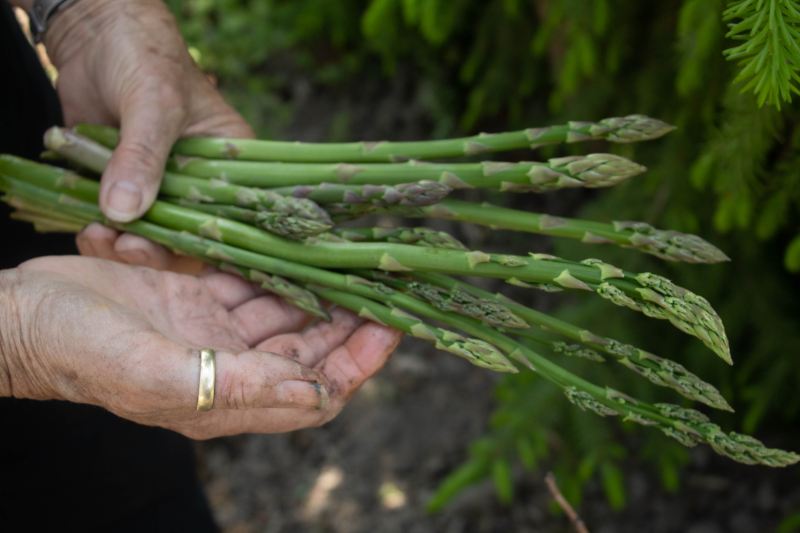
Spring is well underway, so it’s time to put the rich, hearty winter meals on the back burner and resurrect all fresh, green, and vibrant things. Springtime means picnics among the budding flower gardens, with fresh vegetables bursting with life and sunshine.
One of our favorite vegetables is asparagus. When done right, this little weirdo of the vegetable world is one of the most delectable spring ingredients. Sadly, despite our best efforts, we often rob this little green stalk of all its goodness before it even gets to the picnic basket. We say; it’s time to turn that around. To honor this springtime gem the way it should be marked, we’ve compiled a list of crimes against asparagus we vow never to commit again.
1. Not eating it in season
We live in a time when almost any ingredient can be purchased year-round at grocery stores without a second thought. No matter the month, you can have an array of out-of-season fresh fruits and vegetables on your table with no more than a trip to Safeway.
That’s a beautiful thing in many ways, but one of the setbacks is that we get used to eating subpar ingredients when they’re out of season. Asparagus season is from February to June, the peak months being April and May. You’ll notice that the asparagus in the produce aisle even looks happier during that time. This is when asparagus shines in any recipe you can cook up, so buy it in bulk.
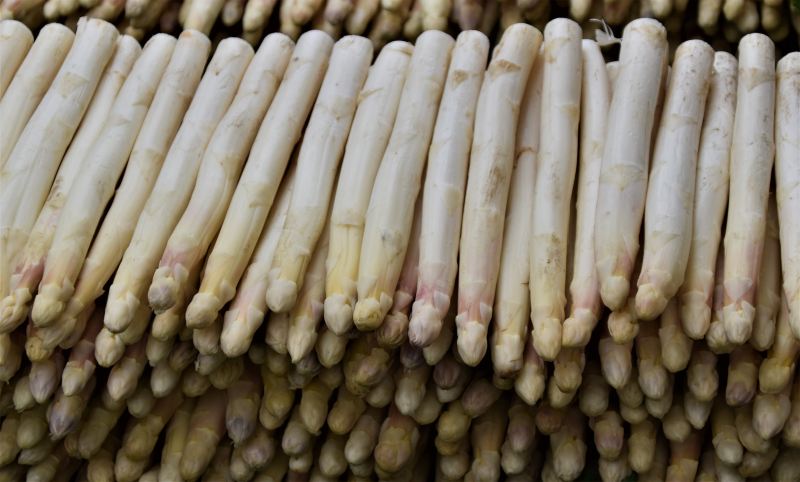
2. Focusing only on one type
While green is the most popular type, there are four basic asparagus types — green, white, purple, and wild. Within these types are many varieties with cutesy names like Purple Passion and Mary Washington.
Regarding flavor differences, the green asparagus we all know and love are mild and earthy with slightly grassy notes. White has a milder flavor but can be somewhat bitter. Purple asparagus contains about 20% more sugar than other varieties and is the sweetest. And wild tastes similar to traditional green but with a more robust, nuttier flavor.
Each type is delicious, so don’t limit yourself to just one type!
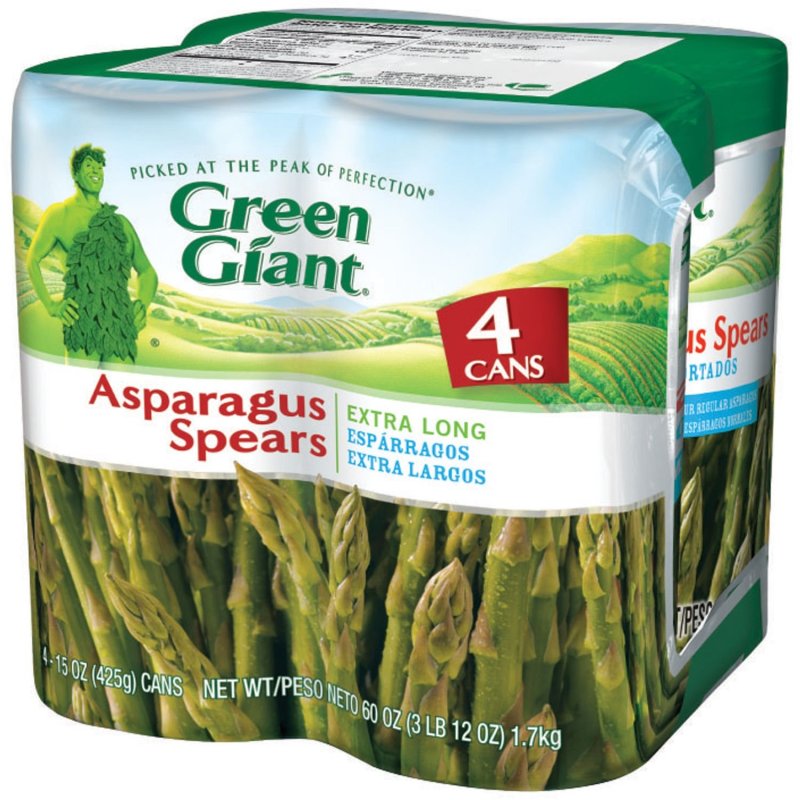
3. Not eating it fresh
Many vegetables freeze and can beautifully. Asparagus isn’t one of them. Please don’t do it. The one exception to this rule is pickled asparagus, which is stupidly delicious.
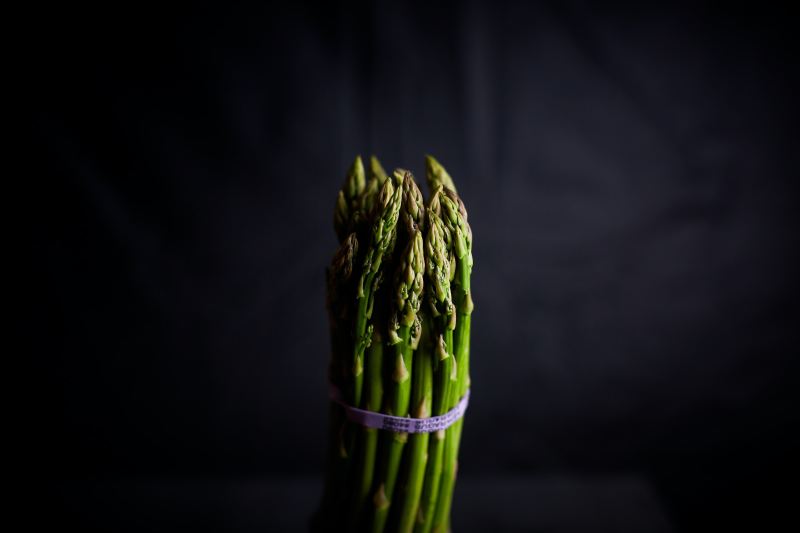
4. Storing it incorrectly
When putting groceries away, the temptation is to toss them into the refrigerator or cabinet precisely as they were packaged at the store. But asparagus is a delicate little veggie that needs extra love and care. Often, asparagus is conveniently bundled and held together with a rubber band. To avoid bruising, be sure to remove that rubber band as soon as you can. For a few days of added freshness, trim the bottoms of each spear and place them upright in a jar with about an inch of water. This will keep your asparagus fresh in the refrigerator for up to a week.
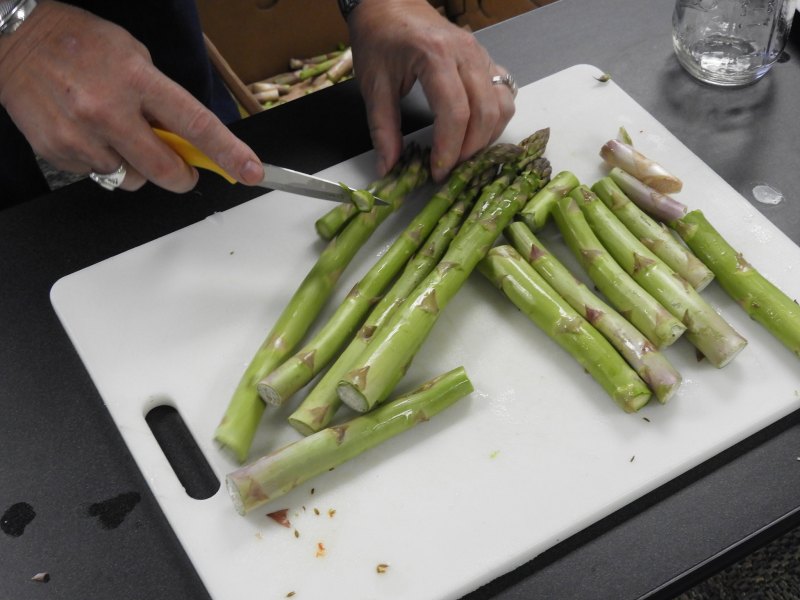
5. Incorrect trimming
How to prepare asparagus can be a little tricky. The ends are tough and woody, and where to trim the stalk is not always obvious. While the woody ends are a great ingredient to toss into homemade vegetable stock, they aren’t the tastiest. Thankfully, there’s an easy trick to finding the perfect spot every time. Please pick up a single spear and bend it until it snaps. Its natural breaking point is precisely where you should cut it. Of course, if you’re prepping a big batch, there’s no need to do this with each stalk. Snap one and use that one as a guide if each piece is approximately the same size.
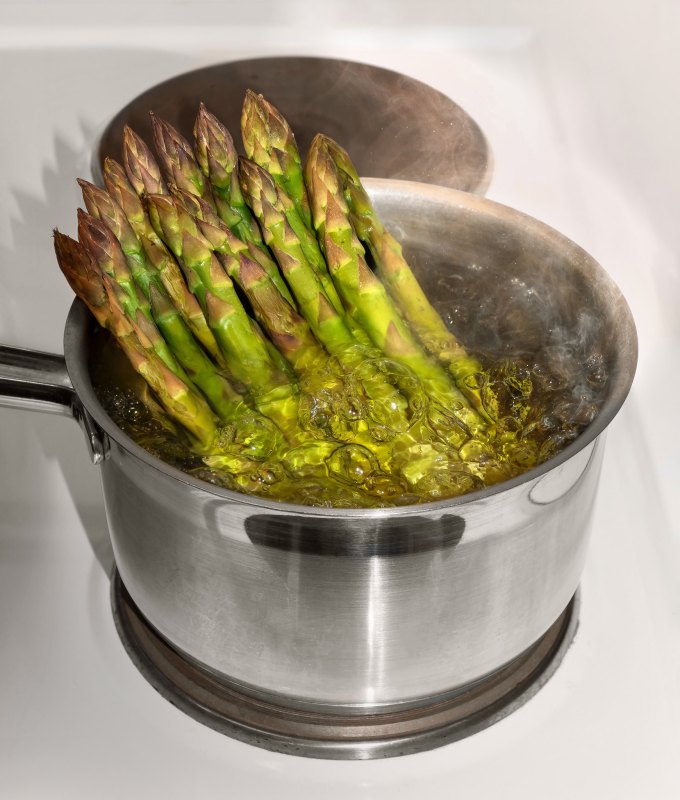
6. Skipping the blanch (and shock)
If you grill or saute your asparagus, giving it a quick blanch first is best. This cooking step is often skipped over, and it shouldn’t be. When delicate, raw vegetables like asparagus are put over high heat, there is a real risk of the outside charring and burning before the inside can properly cook through.
The best way to cook asparagus is to first blanch asparagus in boiling water for 1 to 2 minutes beforehand. This way, they have a head start on the cooking process and won’t need to cook for so long later. After blanching, shock your asparagus by placing them in a bowl of ice water. This will stop the cooking process and help preserve their beautiful color.
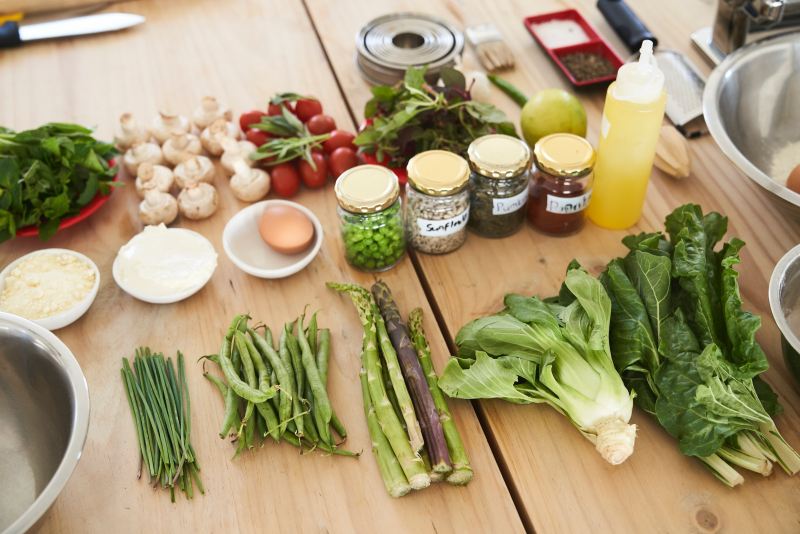
7. Not seasoning enough
This is another common mistake home cooks make with vegetables, and well, most dishes, for that matter. Many fear that using more than the teensiest pinch of salt will overseason their food, resulting in an oversalted, inedible dish. If you grew up using table salt instead of kosher, this fear is understandable, as table salt’s acrid chemical taste can overpower a dish in no more than two shakes.
Regarding seasoning asparagus, it’s okay to be liberal with your kosher salt. Kosher salt not only brings the flavor of salt itself to an ingredient but also helps bring out its natural flavors. Asparagus blends beautifully with various flavors, so be creative with your spice mixes.
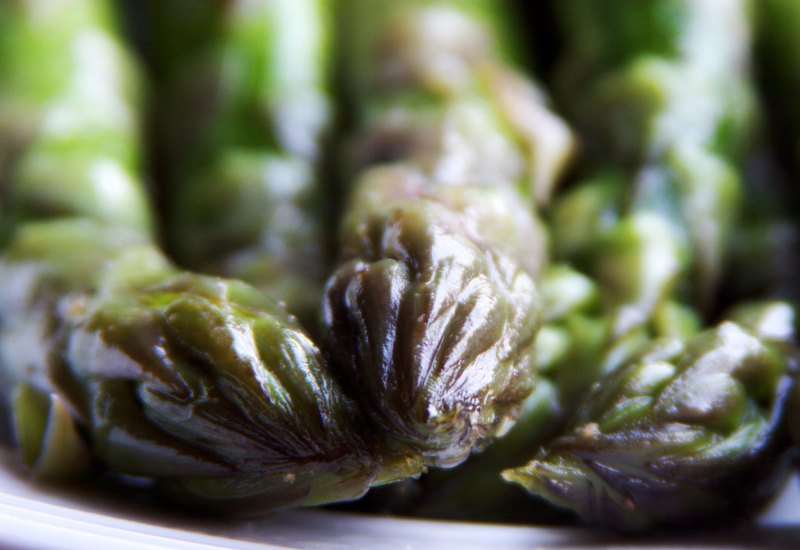
8. Overcooking
Overcooking any vegetable is a crime, to be sure. But this is especially true for asparagus. The most common asparagus cooking offense (as with most vegetables) is boiling the poor things to death. When these slender beauties are submerged in boiling water for too long, they become limp, stringy, and disgustingly unrecognizable versions of themselves.
While we suggest a blanch before another cooking method is applied, such as grilling or sauteeing, if you are set on merely boiling asparagus, please only do so for about 3 or 4 minutes. You want them to be barely tender, not flopping all over the place.
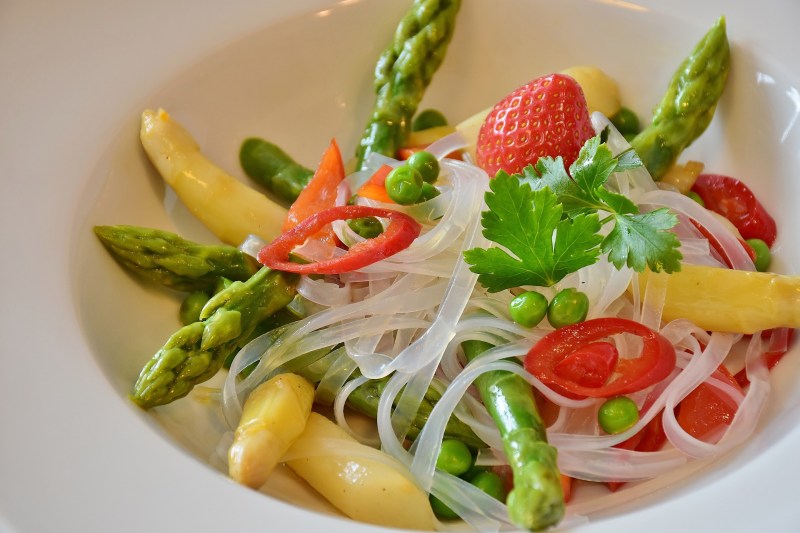
9. Only eating it cooked
Did you know cooking asparagus isn’t even necessary? Sure, asparagus may not be one of the first vegetables you’ll find raw on a crudites platter. You might get a raised eyebrow if you serve a bundle with a side of dip or hummus. But this weirdly shaped little cutie is delicious when served raw. Because asparagus is so fibrous, we wouldn’t suggest eating an entire stalk raw, but when shaved into thin strips or just the tips tossed into a salad, raw asparagus is beautifully earthy and fresh.



